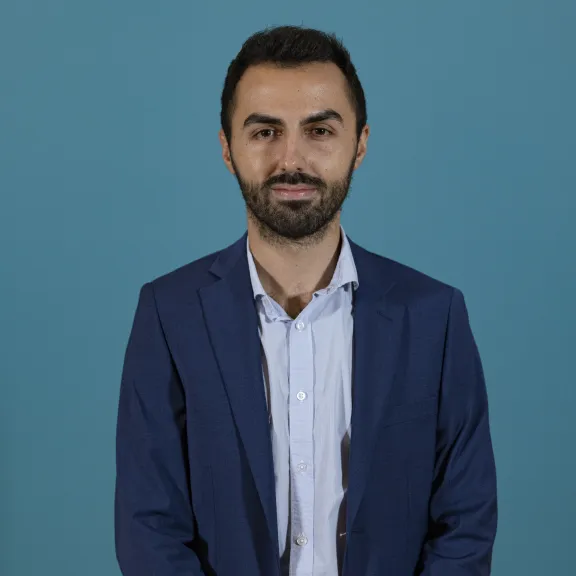Jérémie Rispal Understanding the relationship between microbiota and epigenetics to understand chronic inflammatory bowel disease
Post-doctoral fellow in epigenetics under the supervision of Ophir Klein, University of California San Francisco
- 2021 • Bettencourt Prize for Young Researchers

The 2021 Bettencourt Prize for Young Researchers was awarded to Jérémie Rispal, a post-doctoral student in epigenetics, for his work on chronic inflammatory bowel diseases.
From microbiota to epigenetics
Microbiota is the name for the microorganisms in our intestine. It has multiple functions in health and disease. The microorganisms can modify the intestinal cells’ identity by epigenetically regulating their genes’ expression. To do so, they could act on the proteins that guide the folding and organization of DNA in the cell’s nucleus, making different parts of it more or less available for reading.
Dr. Rispal wants to study the changes that microbiota cause on the expression of genes in intestinal cells and their impact on the development of chronic inflammatory bowel diseases.
Transcriptional regulation and chronic inflammatory bowel disease
In Ophir Klein’s laboratory at the University of California San Francisco, Dr. Rispal will observe changes in DNA organization and its consequences on gene reading in the healthy and diseased gut and in the absence or presence of microbiota. This will allow him to know the role microbiota play in the epigenetic regulation of intestinal cells.
To find out if the observed epigenetic changes are the cause of the microbiota’s effect on inflammatory diseases, Dr. Rispal will delete some of the proteins that reorganize intestinal cell DNA and see if this prevents those pathologies from appearing.
The proteins could be good candidates for treating chronic inflammatory bowel disease and improving patients’ quality of life.
Jérémie Rispal in a few words
Jérémie Rispal received a bachelor's and master's degree in Clermont Ferrand and did a PhD in cell biology in Toulouse. During his PhD work under the supervision of Fabrice Escaffit and Martine Chevillard-Briet at the Center for Integrative Biology in Toulouse, Dr. Rispal studied the regulation of genes in the intestine.
He discovered that histone H2A.Z, a protein involved in organizing DNA in the nucleus, plays a role in defining the identity and maintaining the function of different cells in the gut.
During his post-doctoral fellowship in San Francisco, he will study what role the environment plays in transcriptional regulation in chronic inflammatory bowel diseases.
Bettencourt Prize for Young Researchers
Created in 1990, the Bettencourt Prize for Young Researchers is one of the first initiatives of the Fondation Bettencourt Schueller. Until 2021, this prize was awarded each year to 14 young doctors of science or doctors of medicine, to enable them to carry out their post-doctoral stay in the best foreign laboratories. 349 young researchers were distinguished. The prize endowment was €25,000.
All the award-winners